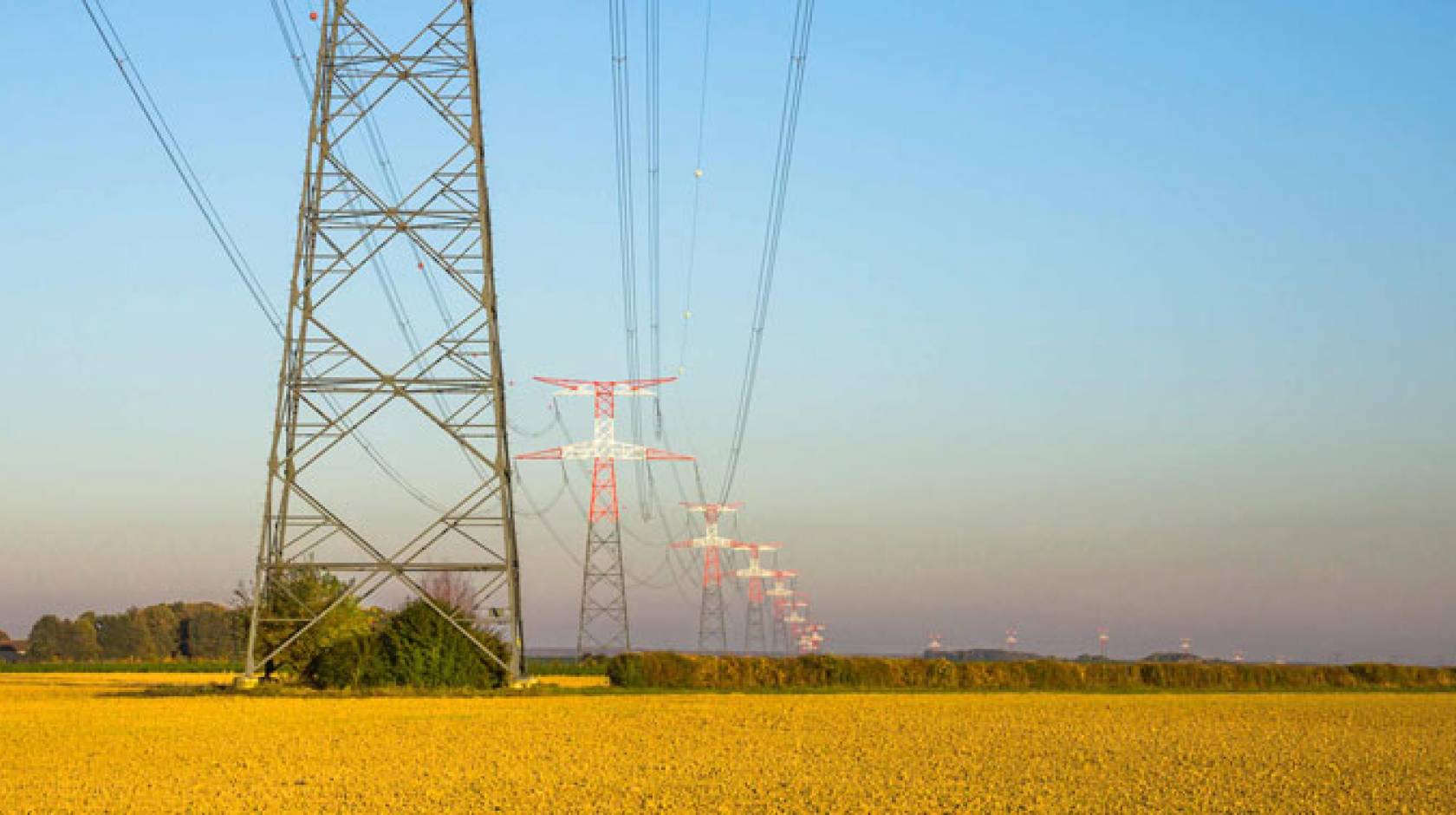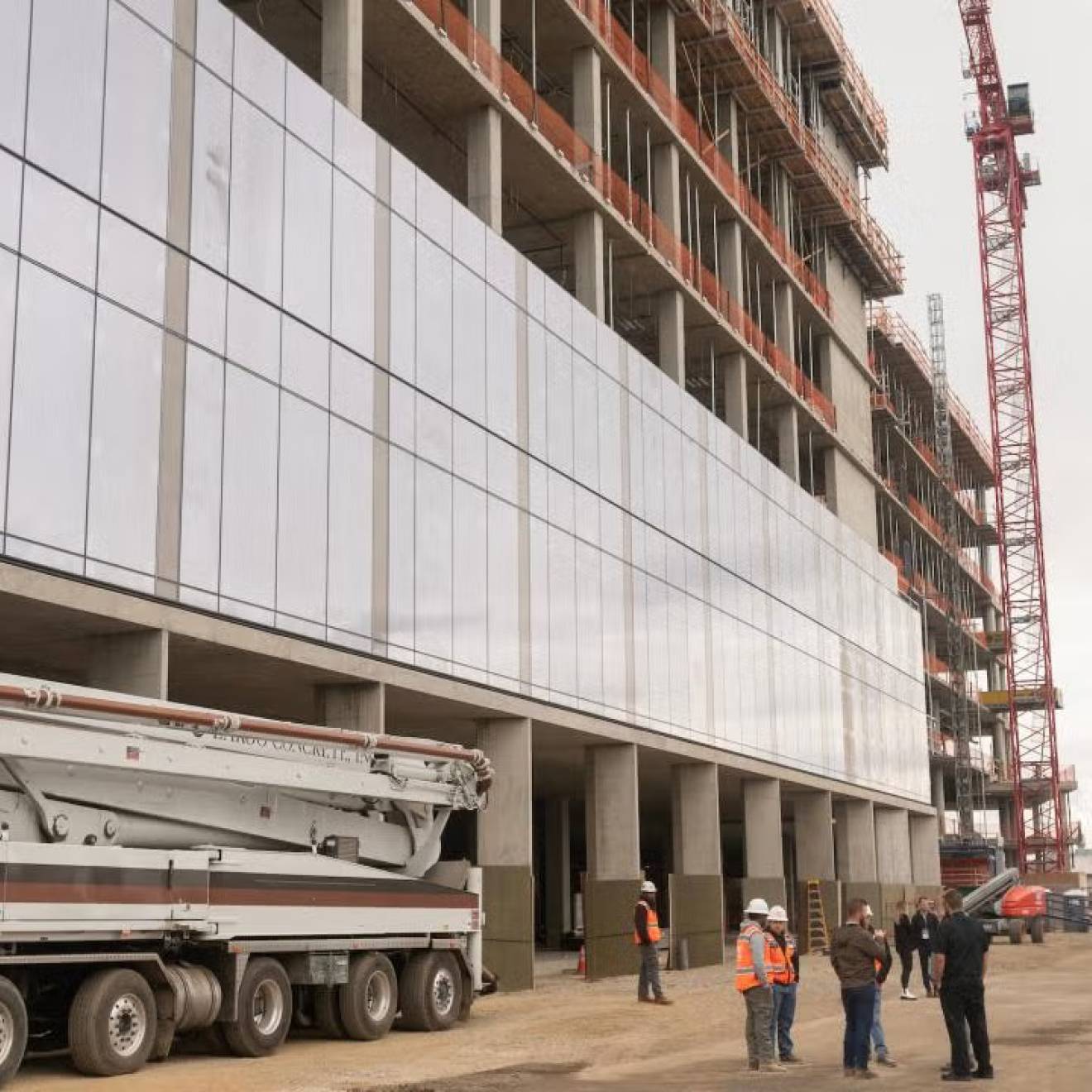Anthony King and Daniel Kane, UC San Diego

Avoiding the worst consequences of climate change by reducing global carbon emissions to as close to zero as possible is one of humanity’s most pressing challenges. The University of California, San Diego has launched the Deep Decarbonization Initiative to do just that. And they plan to do so in the real world—where costs matter.
The initiative is a collaborative effort of UC San Diego faculty from across campus working at the intersection of science, technology and policy. It embeds the study of modern societies—economics, politics and social organization—within expert technical research on energy systems. The goal is to understand not just how energy systems function, but also how policy and social movements can transform energy and protect the planet.
UC San Diego researchers are working to radically re-invent the electric power grid, one of the central challenges to decarbonization. They’re exploring alternative fuels and battery storage for the entire transportation system. And they’re addressing the ever-increasing demand of providing clean energy for the entire planet, helping to grow access to fuel while drastically cutting pollution.
“UC San Diego is stepping up to help guide the difficult process of decarbonizing world energy and transportation systems in a way that is inclusive and comprehensive, and also feasible,” said UC San Diego Chancellor Pradeep K. Khosla. “This is exactly the kind of pressing, boundary-breaking work that defines UC San Diego.”
Credit: UC San Diego
Deep Decarbonization research and education
Through the Deep Decarbonization Initiative, UC San Diego will leverage its tremendous research strengths across campus to serve as an academic hub, connecting students and faculty who are working on issues relevant for decarbonization from different perspectives.
Leading the initiative are George R. Tynan of the Jacobs School of Engineering and David G. Victor of the School of Global Policy and Strategy. Tynan, an associate dean and professor of mechanical engineering, is the head of the PISCES Research Program focusing on nuclear fusion as an energy source. Victor is a political science and policy expert, and co-directs the Laboratory on International Law and Regulation that studies how international laws actually work in the real world.
“I could see us building a new kind of model that allows us to understand not just how technically you decarbonize, but also the social and political constraints and opportunities,” Victor said. “UC San Diego also has a phenomenal micro-grid that is a demonstration case for some of the world’s most interesting and advanced energy systems, and a test bed orchestrated by Byron Washom, Bill Torre and others who have deep expertise in the energy system.”
The aim is to help real societies link the best science and technology with politically realistic strategies that put new energy systems—electricity, wind, plant-based, nuclear, to name only a few—into place on the scale required to make a difference in global carbon emissions. At the same time, this needs to be done while meeting the increasing energy needs of the world.
“How do we drive the costs of low-carbon or zero-carbon energy technologies down to the point where they become competitive with, or perhaps even cheaper than, the fossil fuels? That is one of the challenges in front of the engineers,” Tynan said. “The questions for policy folks are ‘What are those costs?’ and ‘Where are the policy knobs that can be turned to try to enhance or speed that transition?’”
Credit: UC San Diego
What exactly is Deep Decarbonization?
Deep decarbonization refers to the process of moving to a global energy economy that emits zero—or close to zero—carbon into the atmosphere. Today’s global energy economy is primarily powered by the combustion of fossil fuels that, in addition to particles and other pollutants, eject carbon dioxide or CO2 into the atmosphere. CO2 is a climate-change forcing gas, and has hit record-breaking accumulation in Earth’s atmosphere at the same time as scientists have marked a sharp increase in global temperatures.
“There’s clearly a recognition that the world economy needs to move toward low-carbon and zero-carbon energy sources. I don’t think there’s any debate about that,” Tynan said. “But I think what is missing, and what the initiative can help bring to bring to the fore, is the scale of the challenge.”
The issues and challenges of deep decarbonization arise from the fact that global energy demand is going to increase substantially by midcentury. At the same time, carbon emissions have to go to essentially zero in order to avoid the most catastrophic human, economic and ecological consequences of climate change.
“We have to meet the demands of humanity—to meet the energy demands of 9 or 10 billion human beings—and we have to do so in a way that doesn’t emit carbon at a rate that’s unacceptable,” he said.
As part of the Deep Decarbonization Initiative, faculty members from across the UC San Diego campus will bring their expertise to help governments and experts around the world meet that daunting challenge.
For example, nanoengineer Ying Shirley Meng of the Jacobs School and Oleg Shpyrko of the Department of Physics work together through the Sustainable Power and Energy Center to solve key technical challenges in generating and storing energy. Their energy-storage research has implications for many areas including electric vehicles, wind turbines and wearable power devices.
At the Center for Energy Research, currently led by Jacobs School professors Farhat Beg, Carlos Coimbra and Jan Kleissl, teams of researchers are advancing fusion energy, solar-energy forecasting and advanced energy storage. They are also developing fuel cells, which are devices that produce energy through chemical reactions that don’t result in as much pollution as burning coal or gasoline.

Credit: Erik Jepsen/UC San Diego Publications
Stephen Mayfield of the Division of Biological Sciences leads Food & Fuel for the 21st Century, a research unit on campus developing innovative and sustainable solutions for renewable-energy production using green plants and algae. Mayfield, a world-renowned researcher in biofuel production, is also director of the California Center for Algae Biotechnology.
Verification will also play a key role in emerging global carbon-emission reduction efforts. For decades, researchers at Scripps Institution of Oceanography have been leaders in measuring concentrations of CO2, trace gases and aerosols that contribute to global warming, led by atmospheric scientists Ralph Keeling, Veerabhadran Ramanathan, Kim Prather and Ray Weiss. Keeling is director of the Scripps CO2 Program, home of the famous Keeling Curve that continues to track carbon dioxide concentrations in the atmosphere. He and Weiss lead an effort to look at how data already being collected about greenhouse gases can be used to verify international commitments that countries are making to cut those emissions.

Credit: Marshall Burke/UC San Diego
“One goal is for everyone to learn about how other researchers in other disciplines think about what’s going on in the world,” Victor said at the kickoff for initiative’s seminar series Sept. 28, where Meng discussed challenges and opportunities in electro-chemical energy storage. Future seminar speakers include Mayfield, Jennifer Burney of Global Policy and Strategy, Cliff Kubiak of the Department of Chemistry and Biochemistry and William Torre of the Center for Energy Research, among others.
“From here, we can start to see interdisciplinary collaborations emerge,” Victor said. In addition, the initiative’s approach is to not only help scholars at UC San Diego understand how other disciplines work, but also to engage with businesses, policy leaders and the community. This, initiative leaders say, is how the world can move from talking about decarbonization to doing it. “Getting the world—getting businesses, getting governments, getting the population—to really grapple with the scope and scale of the transition that’s required is one of the things this initiative can help with,” Tynan said.
Victor added: “We’re talking about changing investment patterns by trillions of dollars a year in the energy system, over many decades. That has to be done with a sense of reality. That’s what we’re looking to accomplish.”
Learn more about the Deep Decarbonization Initiative at UC San Diego.
